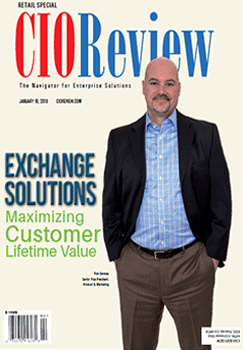Technology that will Revolutionize the Retail Industry in 2019
Retail Industry experiences a paradigm shift with technology that retailers must keep an eye on to meet the growing customer expectations.
Gone are the days when streets were crammed with small retail stores, with people overflowing and chasing their preferences across stores. While the consumers face issues with this brick-and-mortar shopping, they look for a better option that completes the task of shopping in the blink of an eye. In that way, online shopping serves better where consumers shop on their gadgets with just a click of a button instead of taking a trip down to the shopping mall. The advancements in the digital channels are leading to this explosive growth of online shopping. This shift attracts consumers a lot more than the traditional methods, and the retailers must adapt to the transformation to keep in pace with their consumers’ expectations. Here are some technology trends that retailers should keep an eye on to gain the competitive edge.
Check This Out: Top Retail Tech Companies
E-commerce
In a world, where consumers find it challenging to allocate time for shopping in their busy schedules, e-commerce is known to be a bandwagon in the retail industry. It allows consumers to buy products over the internet where they can find their interested products by visiting a website. In an online platform, consumers are given enormous discounts compared to retail stores along with facilities like cash-on-delivery that attracts huge consumers towards online marketing. Retail e-commerce has the provision for writing reviews, a way to analyze the product quality while helping others make decisions. Also, consumers can see product specifications, making people more aware of products while comparing it with other alternatives.

IoT
Interestingly, IoT connects over 11 billion everyday products like TVs, home speakers, and other home appliances to the internet, enabling the retailers to obtain hoards of data about the consumers’ preferences. This allows them to send relevant messages to their consumers, thereby promoting their product. For example, Beacons, introduced by Apple in 2013, are small Bluetooth devices that send recommendations such as discounts and other reminders for buyers based on location proximity. With IoT, it is possible to track products that a customer has been looking for and send personalized discounts to their smartphones when the customer is passing by that product at a physical store. Another important application of IoT is smart shelves. It gives the ability to shopkeepers to detect potential theft along with product information like if they are running low or are incorrectly placed in the racks.

Comments
Post a Comment